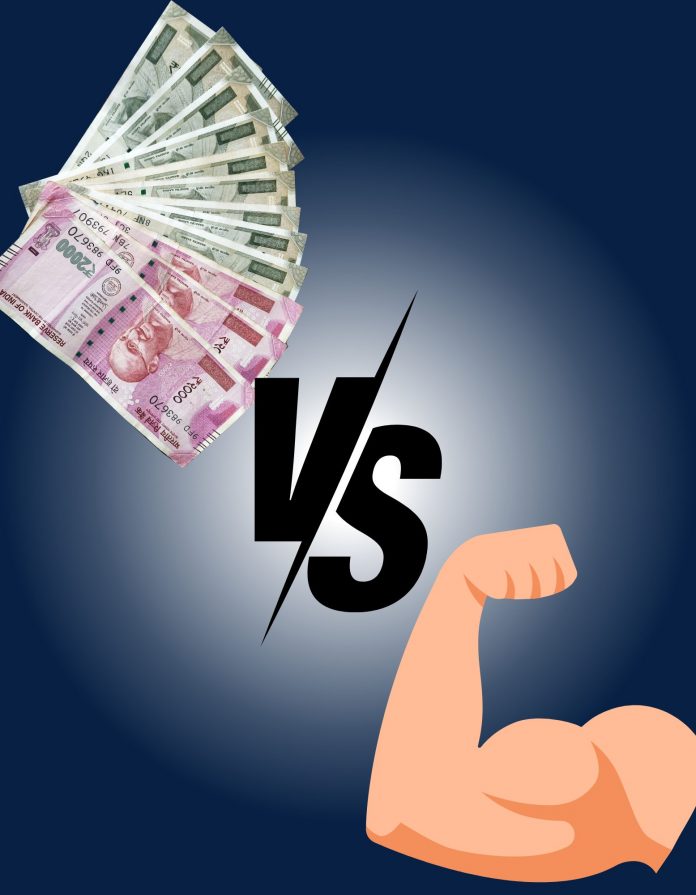Introduction
Indian politics, renowned for its diversity and vibrancy, has unfortunately also gained a reputation for the involvement of money and muscle power. The intertwining of these two factors has a significant impact on the democratic process and governance in the country. In this blog, we will delve into the intricate relationship between money, muscle power, and Indian politics, highlighting its implications for the nation’s democratic fabric.
- Understanding Money Power in Politics:
Money power in Indian politics refers to the influence exerted by financial resources in electoral campaigns, candidate selection, and policy formulation. The high costs associated with elections often lead to the reliance on financial backing from corporate entities, wealthy individuals, and even illegal sources. This financial support can sway electoral outcomes and compromise the representation of the common citizen. - The Effects of Money Power:
a. Uneven Playing Field: The availability of vast financial resources gives some candidates an unfair advantage over others, leading to an uneven playing field where those with more money can dominate the political arena.
b. Policy Distortion: Candidates and parties backed by wealthy sponsors might prioritize their interests over public welfare, leading to policies that favor their benefactors rather than the broader population.
c. Corruption: The influx of money power can foster corruption, as candidates may feel obligated to return favors to their financiers once in power. - Muscle Power in Indian Politics:
Muscle power in politics refers to the use of physical force, intimidation, and coercion to influence electoral outcomes and maintain control. This can involve criminal elements entering politics, using violence to manipulate voters, or even influencing law enforcement agencies. - Implications of Muscle Power:
a. Erosion of Democracy: The use of force and intimidation undermines the democratic principles of free and fair elections, as voters might feel pressured to vote a certain way against their will.
b. Criminalization of Politics: Infiltration of criminal elements into politics can lead to policy decisions that serve their interests and compromise the rule of law.
c. Social Unrest: The prevalence of muscle power can lead to social unrest and instability, as citizens lose faith in the electoral process and the governance system. - Combating Money and Muscle Power:
a. Electoral Reforms: Strengthening laws related to campaign finance and enforcing transparency in political funding can help curb the influence of money power.
b. Strong Institutions: Bolstering institutions like the Election Commission and law enforcement agencies can ensure fair elections and prevent the misuse of muscle power.
c. Voter Awareness: Educating voters about the detrimental effects of money and muscle power can empower them to make informed choices and reject candidates who rely on such tactics.
Conclusion
The intertwining of money and muscle power in Indian politics is a pressing issue that challenges the very essence of democracy. Addressing these challenges requires a collective effort from citizens, political parties, and the government. By promoting transparency, enforcing accountability, and fostering a culture of ethical politics, India can safeguard its democratic principles and ensure that the voice of every citizen is heard, untainted by undue influences.

